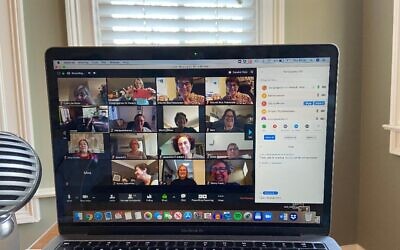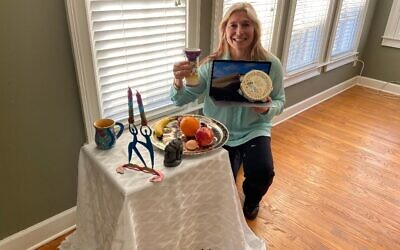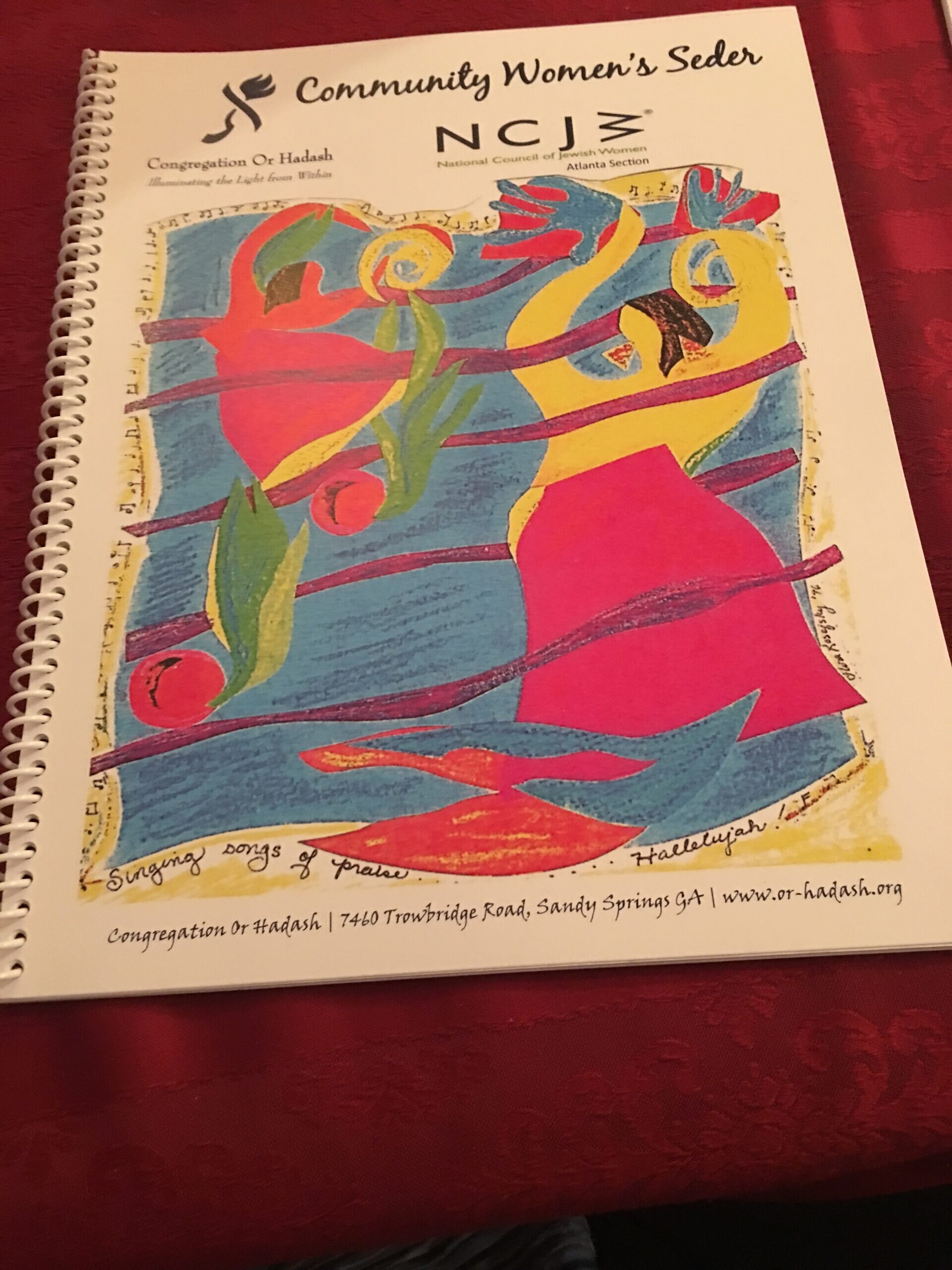Atlanta Women’s Mini-Seder Reflects Current Plague
Rabbi Analia Bortz led a community women's seder.

The traditions of the Passover seder took on a whole new meaning at this year’s women’s seder sponsored by the Atlanta section of the National Council of Jewish Women and Congregation Or Hadash. When the seder leader, Rabbi Analia Bortz, started the Urchatz, or washing of the hands, she noted, “There’s nothing more important today than to wash our hands. Our ancestors have been doing this for many, many years.”
In the midst of Atlantans – and Jews everywhere – staying at home to avoid the current plague of the coronavirus, the annual seder was held March 26 via 60 computers in locations as far afield as Boston and Las Vegas in this country, Canada and New Zealand around the world.
“Thank goodness for technology and thank goodness for Zoom,” exclaimed Sherry Z. Frank, president of the Atlanta section as she welcomed participants that included several mother-daughter combinations at one location. Alternately turning the mute button on and off, several women read passages from the selections of the haggadah chosen for this year’s renamed NCJW and Congregation Or Hadash “Mini” Community Women’s Seder. Co-chairs of the event included Ellen Banov, Ellyn Jeager and Renee Videlefsky.
Noting that the participants were “physically distant but socially connected,” Rabbi Bortz launched the seder with a niggun, or melody, that needed no lyrics. “We can’t hold hands, but we can hold hearts,” she said. “Today we are leaving a different Egypt,” plagued with an “invisible virus that has shown us that we’re just humans.”

She disclosed that she had written new “commandments” for herself during these days of sheltering in place, or, in other words, being told to stay home. Among those were being patient, being grateful and allowing oneself to be creative. She’s trying to learn to play the guitar, she told the seder participants, something she hadn’t done since she was 8 years old.
In a seder devoid of food, the “meat” of the service was the explaining of several symbols often seen in women’s seders. Referring to Miriam’s cup, Rabbi Bortz said the “real story began in 1978 in Philadelphia by a group of women who got together on Sukkot.” The story picked up in 1985 with women in Massachusetts who incorporated a glass of water into the Rosh Chodesh, or New Month, prayers.

Finally, in 1998, the idea jumped the pond when women in the United Kingdom “decided to bring Miriam into the seder.” These women sang a version of the song “Eliyahu Hanavi,” naming Miriam instead of Eliyahu. Miriam was Moses’ sister in the story of the Exodus.
Participants in the women’s mini-seder also sang “Miriam’s Song,” written by the late Debbie Friedman.

Even the traditional Four Questions were rewritten to be asked by “sisters of NCJW.”
“Why is this night different from all other nights? Tonight we gather as women and shed our light on the story of the Exodus.”
“Why is this night both bitter and sweet? The struggle for women’s dignity, equality and security is bitter; the results of our advocacy and service are sweet.”
“Why on this night do we drink the wine of our history? We rejoice in the re-experiencing of the liberation in our day.”
“Why on this night do we recline? We recline on this night for the unhurried telling of the legacy of Miriam.”
Modern plagues were recited in place of those in the traditional haggadah. These included discrimination, poisoning of the earth, ravages of war, economic injustice, chemical dependency, world hunger, religious intolerance, unemployment, denial of human rights and the threat of nuclear holocaust. Noting that these are plagues that “afflict our own generation,” Rabbi Bortz pointed out that “each year, these plagues have different meanings.”
She ended the seder with her family’s tradition of singing the Israeli anthem, “Hatikvah,” which was especially fitting for her since she and her husband, Rabbi Mario Karpuj, will be living in Jerusalem before next Passover.



comments